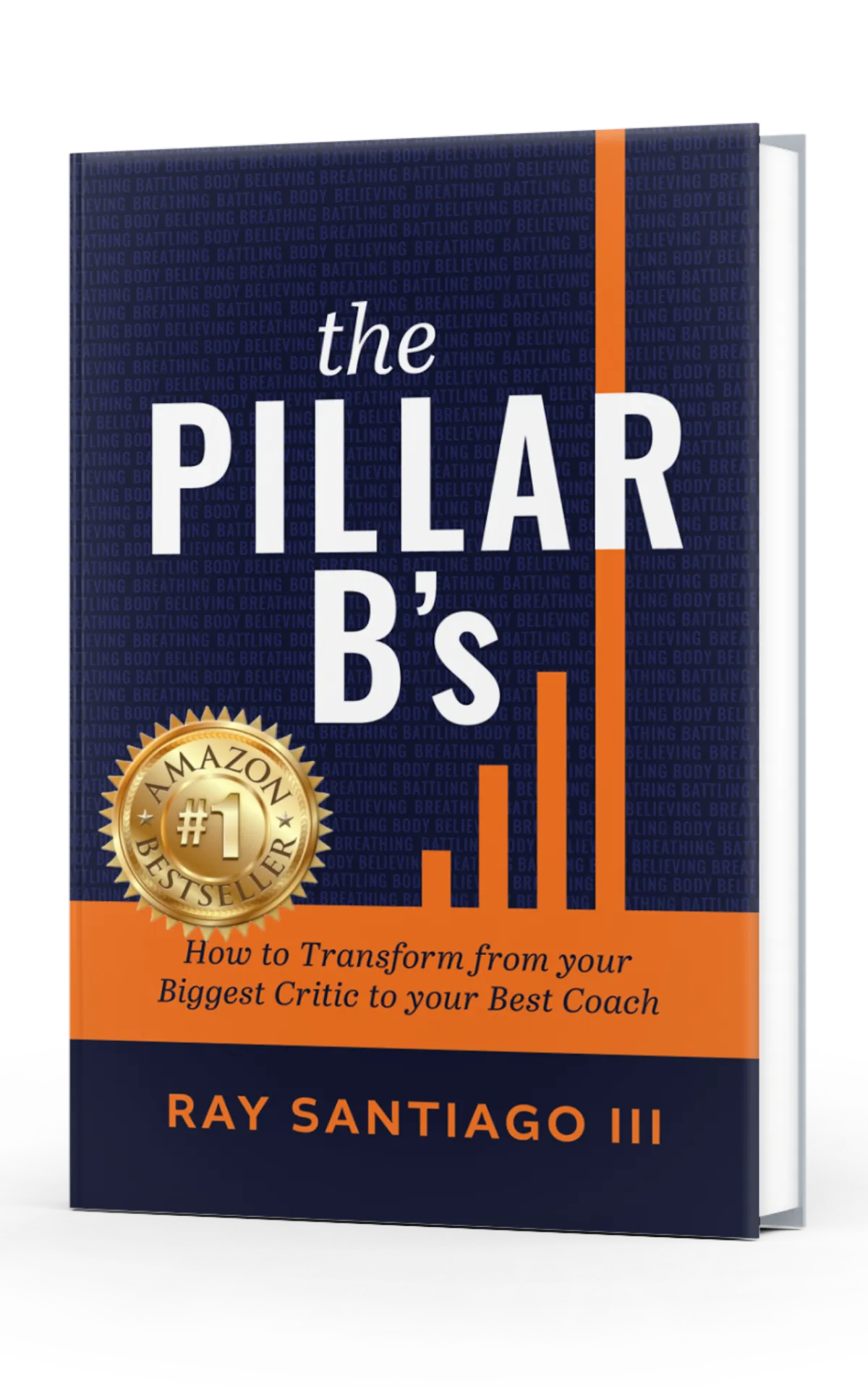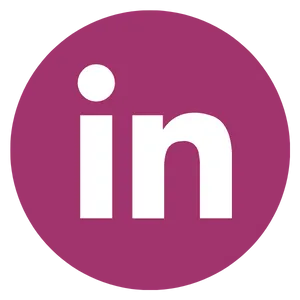Tips and insights on how to be the author you aspire to be.
Tips and insights on
how to be the author
you aspire to be.

Unleashing Success: How the Storybrand Framework Can Transform Your Business Messaging
“The important of moving from a self-focused to an audience-focused perspective in book promotion cannot be overstated.”
Success in today's business world hinge on the ability to communicate effectively. If your business is struggling to send a clear message or achieve its full potential, the solution may lie in how you market your brand. Mary Czarnecki, a Storybrand marketing coach and marketing strategist, knows this all too well. Having honed her skills in the corporate world, she now dedicates her expertise to helping small to medium-sized businesses navigate the challenging world of digital marketing. Mary explains how the Storybrand framework can be used to sharpen your message and propel your business to new levels of success.
With that said, here are 5 things you should know about the Storybrand framework! 👊
1. How can shifting from a self-focused to an audience-focused perspective enhance book promotion?
The shift from adopting a self-focused perspective to an audience-focused one can significantly enhance book promotion efforts. This concept is centered on the idea that to effectively engage and connect with readers, authors need to orient their narratives and promotional strategy towards the audience's needs, perspectives, and interests. Rather than merely broadcasting information about the book and its content, successful book marketing requires meaningful engagement and dialogue with prospective readers. This necessitates a keen understanding of the readers' context, their pain points, and how the book can provide them value. Essentially, adopting an audience-focused approach is about fostering a sense of connectedness and relatability between the author and the readers, cultivating a community of readers who resonate deeply with the author's work.
2. What strategies can help authors talk about their books without coming across as bragging?
Learning to talk about one's books without appearing boastful is an essential skill for authors. This is particularly true for those who use their written works as tools to establish their authority and credibility in a certain field. Discussing one's book in a way that shows its value without exuding an air of self-promotion can be challenging, but it's a vital strategy in ensuring the book reaches the intended audience and serves its purpose as a marketing instrument.
In our podcast conversation, Mary Czarnecki offers valuable insights on effectively navigating this challenge. Rather than defaulting to self-promotion, she encourages authors to shift their focus to the audience. She suggests using the perspective of solving problems and helping others to frame discussions about the book, bringing the content's value proposition to the forefront. A relatable analogy that Mary brings up is viewing the conversation as if a friend needs help. In such a scenario, the natural tendency would be to explain how the book can provide solutions for the friend's predicament. Essentially, it is not about showcasing the author's knowledge or skills, but emphasizing how the book can effectively address the readers' challenges.
The importance of adopting such an approach is multi-faceted. Firstly, it allows the author to present their book genuinely and relatably, enhancing its appeal to the target audience. Secondly, it underscores the book's value and utility, rather than simply the author's expertise or accomplishments. This approach fosters a stronger connection between the author and the reader, enabling the former to position their book as a helpful resource rather than a mere portfolio of their knowledge. Ultimately, mastering this communications strategy is a pivotal step in maximizing the book's potential as a tool for growth and success.
3. How can the Storybrand framework assist businesses in achieving success?
As the scope and pace of businesses keep evolving, the need for reliable marketing systems becomes more critical. The Storybrand framework, an effective marketing tool, addresses these changes in the business world by helping companies clarify their messaging. This method allows companies to communicate their value proposition in an understandable, memorable and impactful way, thus making their marketing efforts more successful.
In the podcast episode, Mary Czarnecki reveals how she uses the Storybrand framework in her role as a marketing coach. Particularly in working with small to medium-sized businesses, She uses this framework to help companies identify what their customers want, what problems they face, and how they can uniquely provide a solution. She cites Storybrand's seven part process as a means of making clients' messages clearer and marketing strategies more compelling. This clarity cuts through the noise and allows businesses to connect directly with their customers.
The importance of this relevant marketing approach can't be overemphasized. Businesses — especially those at a crucial growth stage, not only need to have a clear understanding of their branding and messaging, but also need to communicate that effectively to their target audience. With noise in the marketplace at an all-time high, getting your message across clearly is not a luxury, but a necessity. By leveraging the Storybrand framework, businesses can create compelling narratives that resonate with their audience, propelling them towards their desired action. Ultimately, this influences business performance, and drives sustainable success. The strategy taken by the Storybrand framework provides a guide that can help businesses navigate the tricky terrain of effective communication and ultimately enhance their growth and profitability.
4. How does understanding the audience's language and pain points contribute to effective communication?
Understanding the language of your audience and their specific pain points is crucial as it is at the heart of effective communication. This approach ensures that businesses can build a connection with their audience, catering directly to their needs and desires. It's all about entering the conversation already taking place in the customer's mind and aligning one's communication efforts to resonate with that dialogue. By using the language that they use to describe their problems, businesses can position their product or service as the ideal solution. Furthermore, understanding their pain points allows businesses to emphasize the right features of their product or service, leading to a more persuasive and compelling message.
The importance of understanding the audience's language and pain points stretches far beyond just ensuring effective communication. It sets the stage for businesses to design their products or services in a way that comprehensively addresses the audience's needs. When businesses display a deep understanding of their pain points, it gives their audience the reassurance that the solutions they offer are indeed fit for purpose. Moreover, using the same language as the audience creates a sense of community and belonging. It gives the audience the comfort of feeling seen, heard, and understood, thereby fostering loyalty and driving long-term success. In a world where competition is fierce, businesses that invest in understanding who they are speaking to, and tailoring their message to resonate with that audience, will undoubtedly stand out.
5. Why is continuous learning crucial in adapting to the changing digital marketing landscape?
Understanding the power of clear, concise messaging is critical for small to medium-sized businesses looking to break through plateaus and achieve new levels of success. Mary Czarnecki's insights into the Storybrand framework provide a roadmap for businesses to navigate this often challenging landscape. The key questions explored in our discussion underscore the importance of focusing on customer-centric messaging and the role of books in establishing authority.
As we conclude, remember that continuous learning and adaptation are not optional but essential in the rapidly changing digital marketing landscape. Let the insights gained from this discussion serve as a catalyst in your pursuit of success!
Listen to this Episode from The Better Book Launch Podcast.

Unleashing Success: How the Storybrand Framework Can Transform Your Business Messaging
“The important of moving from a self-focused to an audience-focused perspective in book promotion cannot be overstated.”
Success in today's business world hinge on the ability to communicate effectively. If your business is struggling to send a clear message or achieve its full potential, the solution may lie in how you market your brand. Mary Czarnecki, a Storybrand marketing coach and marketing strategist, knows this all too well. Having honed her skills in the corporate world, she now dedicates her expertise to helping small to medium-sized businesses navigate the challenging world of digital marketing. Mary explains how the Storybrand framework can be used to sharpen your message and propel your business to new levels of success.
With that said, here are 5 things you should know about the Storybrand framework! 👊
1. How can shifting from a self-focused to an audience-focused perspective enhance book promotion?
The shift from adopting a self-focused perspective to an audience-focused one can significantly enhance book promotion efforts. This concept is centered on the idea that to effectively engage and connect with readers, authors need to orient their narratives and promotional strategy towards the audience's needs, perspectives, and interests. Rather than merely broadcasting information about the book and its content, successful book marketing requires meaningful engagement and dialogue with prospective readers. This necessitates a keen understanding of the readers' context, their pain points, and how the book can provide them value. Essentially, adopting an audience-focused approach is about fostering a sense of connectedness and relatability between the author and the readers, cultivating a community of readers who resonate deeply with the author's work.
2. What strategies can help authors talk about their books without coming across as bragging?
Learning to talk about one's books without appearing boastful is an essential skill for authors. This is particularly true for those who use their written works as tools to establish their authority and credibility in a certain field. Discussing one's book in a way that shows its value without exuding an air of self-promotion can be challenging, but it's a vital strategy in ensuring the book reaches the intended audience and serves its purpose as a marketing instrument.
In our podcast conversation, Mary Czarnecki offers valuable insights on effectively navigating this challenge. Rather than defaulting to self-promotion, she encourages authors to shift their focus to the audience. She suggests using the perspective of solving problems and helping others to frame discussions about the book, bringing the content's value proposition to the forefront. A relatable analogy that Mary brings up is viewing the conversation as if a friend needs help. In such a scenario, the natural tendency would be to explain how the book can provide solutions for the friend's predicament. Essentially, it is not about showcasing the author's knowledge or skills, but emphasizing how the book can effectively address the readers' challenges.
The importance of adopting such an approach is multi-faceted. Firstly, it allows the author to present their book genuinely and relatably, enhancing its appeal to the target audience. Secondly, it underscores the book's value and utility, rather than simply the author's expertise or accomplishments. This approach fosters a stronger connection between the author and the reader, enabling the former to position their book as a helpful resource rather than a mere portfolio of their knowledge. Ultimately, mastering this communications strategy is a pivotal step in maximizing the book's potential as a tool for growth and success.
3. How can the Storybrand framework assist businesses in achieving success?
As the scope and pace of businesses keep evolving, the need for reliable marketing systems becomes more critical. The Storybrand framework, an effective marketing tool, addresses these changes in the business world by helping companies clarify their messaging. This method allows companies to communicate their value proposition in an understandable, memorable and impactful way, thus making their marketing efforts more successful.
In the podcast episode, Mary Czarnecki reveals how she uses the Storybrand framework in her role as a marketing coach. Particularly in working with small to medium-sized businesses, She uses this framework to help companies identify what their customers want, what problems they face, and how they can uniquely provide a solution. She cites Storybrand's seven part process as a means of making clients' messages clearer and marketing strategies more compelling. This clarity cuts through the noise and allows businesses to connect directly with their customers.
The importance of this relevant marketing approach can't be overemphasized. Businesses — especially those at a crucial growth stage, not only need to have a clear understanding of their branding and messaging, but also need to communicate that effectively to their target audience. With noise in the marketplace at an all-time high, getting your message across clearly is not a luxury, but a necessity. By leveraging the Storybrand framework, businesses can create compelling narratives that resonate with their audience, propelling them towards their desired action. Ultimately, this influences business performance, and drives sustainable success. The strategy taken by the Storybrand framework provides a guide that can help businesses navigate the tricky terrain of effective communication and ultimately enhance their growth and profitability.
4. How does understanding the audience's language and pain points contribute to effective communication?
Understanding the language of your audience and their specific pain points is crucial as it is at the heart of effective communication. This approach ensures that businesses can build a connection with their audience, catering directly to their needs and desires. It's all about entering the conversation already taking place in the customer's mind and aligning one's communication efforts to resonate with that dialogue. By using the language that they use to describe their problems, businesses can position their product or service as the ideal solution. Furthermore, understanding their pain points allows businesses to emphasize the right features of their product or service, leading to a more persuasive and compelling message.
The importance of understanding the audience's language and pain points stretches far beyond just ensuring effective communication. It sets the stage for businesses to design their products or services in a way that comprehensively addresses the audience's needs. When businesses display a deep understanding of their pain points, it gives their audience the reassurance that the solutions they offer are indeed fit for purpose. Moreover, using the same language as the audience creates a sense of community and belonging. It gives the audience the comfort of feeling seen, heard, and understood, thereby fostering loyalty and driving long-term success. In a world where competition is fierce, businesses that invest in understanding who they are speaking to, and tailoring their message to resonate with that audience, will undoubtedly stand out.
5. Why is continuous learning crucial in adapting to the changing digital marketing landscape?
Understanding the power of clear, concise messaging is critical for small to medium-sized businesses looking to break through plateaus and achieve new levels of success. Mary Czarnecki's insights into the Storybrand framework provide a roadmap for businesses to navigate this often challenging landscape. The key questions explored in our discussion underscore the importance of focusing on customer-centric messaging and the role of books in establishing authority.
As we conclude, remember that continuous learning and adaptation are not optional but essential in the rapidly changing digital marketing landscape. Let the insights gained from this discussion serve as a catalyst in your pursuit of success!
Listen to this Episode from The Better Book Launch Podcast.
Bestselling Book Launches









explore more
socials
©2023 All Rights Reserved | Privacy Policy | Terms Of Service | Cookie Policy | Disclaimer







